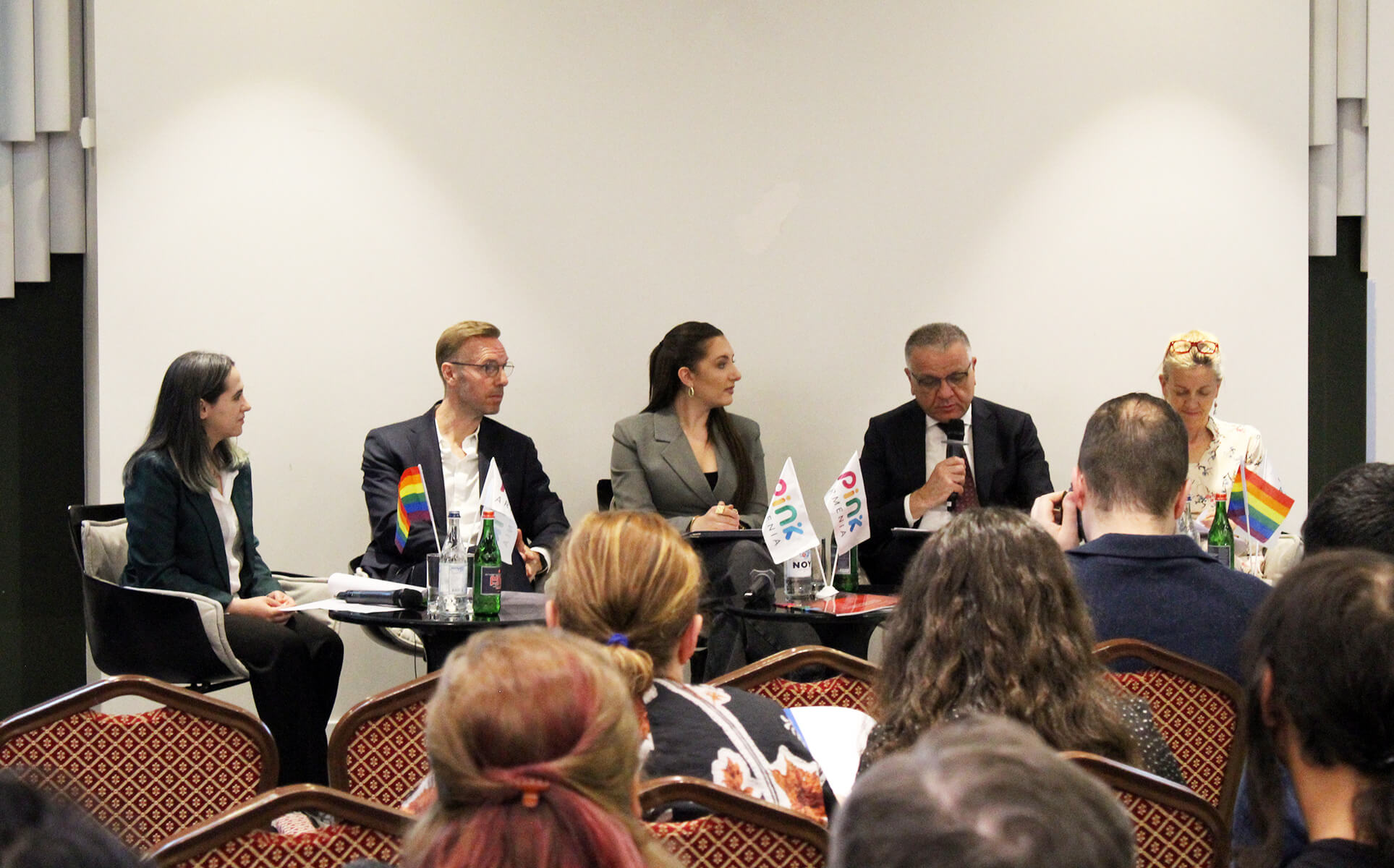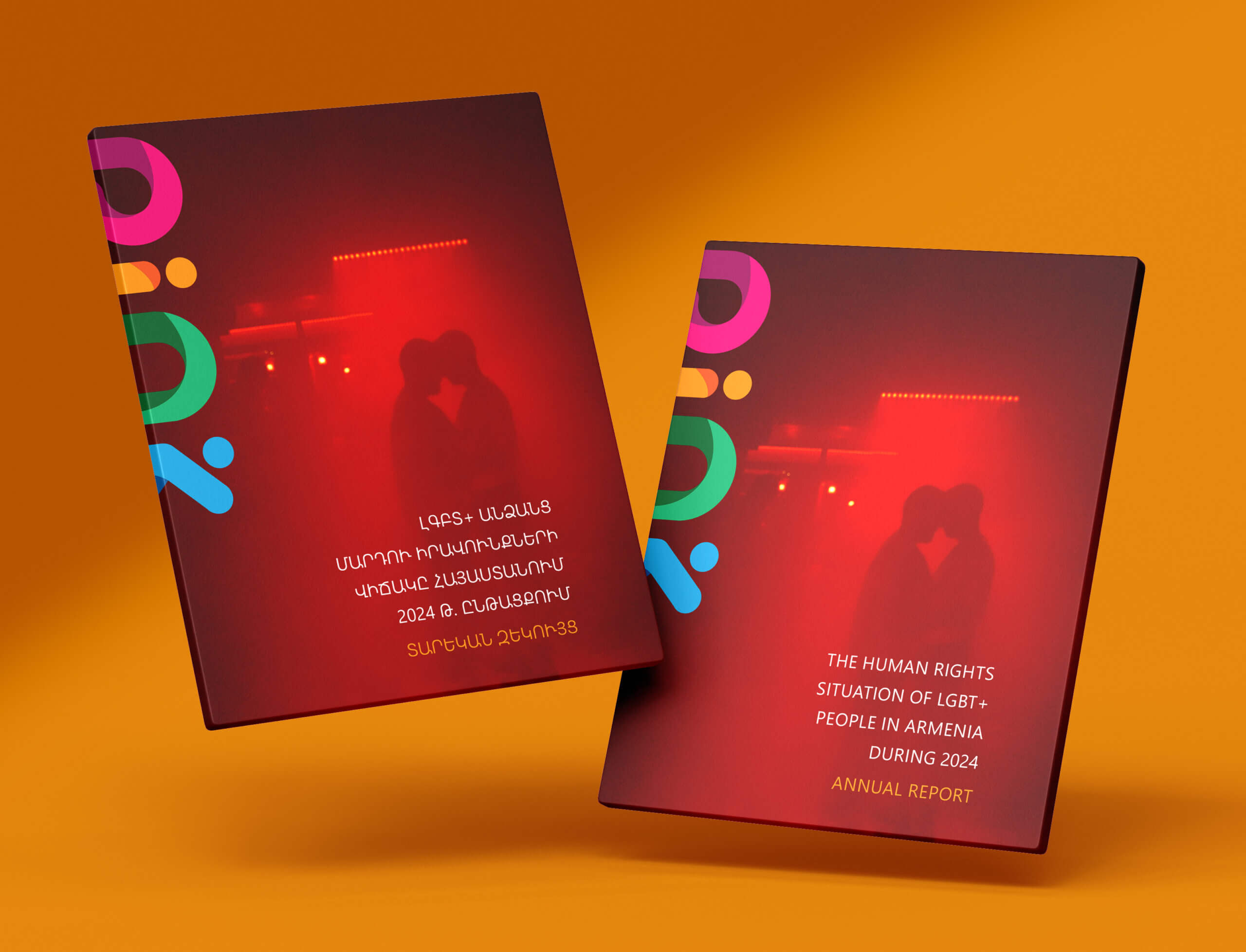Civil Society Alarms About Discrimination and Hate Crimes in OSCE Region
 The Civic Solidarity Platform a network of more than 60 human rights NGOs throughout the OSCE region running since 2010. The platform held the 2014 on 2-3 December Civil Society Conference parallel to OSCE Ministerial Council meeting in Basel. At the conference, activists from OSCE region countries discussed issues addressing Comprehensive Security in the region, Alarming Trends in Observation of Fundamental Human Rights including the security of human rights defenders, the struggle against intolerance, discrimination, hate crime and hate speech, prevention of torture, enforced disappearances, as well as enhancing civil society input in OSCE activities. The civil society representatives reflected on the policy document, developed by the Civic Solidarity Platform containing civil society analysis and recommendations on alarming human dimension issues across the OSCE region in 2014, on human dimensions[1] issues in Switzerland, in light of the country’s OSCE Chairmanship, and human dimensions issues in Serbia, in light of the country’s incoming OSCE Chairmanship. It also includes reflections on the impact of the crisis in Ukraine on comprehensive security in Europe as well as recommendations for enhanced engagement of civil society in the OSCE work. Many of the recommendations are based on results of the work of regional OSCE civil society workshops, held during 2014 and organized jointly by the Civic Solidarity Platform and national civil society organizations.
The Civic Solidarity Platform a network of more than 60 human rights NGOs throughout the OSCE region running since 2010. The platform held the 2014 on 2-3 December Civil Society Conference parallel to OSCE Ministerial Council meeting in Basel. At the conference, activists from OSCE region countries discussed issues addressing Comprehensive Security in the region, Alarming Trends in Observation of Fundamental Human Rights including the security of human rights defenders, the struggle against intolerance, discrimination, hate crime and hate speech, prevention of torture, enforced disappearances, as well as enhancing civil society input in OSCE activities. The civil society representatives reflected on the policy document, developed by the Civic Solidarity Platform containing civil society analysis and recommendations on alarming human dimension issues across the OSCE region in 2014, on human dimensions[1] issues in Switzerland, in light of the country’s OSCE Chairmanship, and human dimensions issues in Serbia, in light of the country’s incoming OSCE Chairmanship. It also includes reflections on the impact of the crisis in Ukraine on comprehensive security in Europe as well as recommendations for enhanced engagement of civil society in the OSCE work. Many of the recommendations are based on results of the work of regional OSCE civil society workshops, held during 2014 and organized jointly by the Civic Solidarity Platform and national civil society organizations.
Among the documents prepared by the conference is the “Basel Declaration” entitled “Rising Intolerance, Discrimination, and Hate Crimes Pose a Major Risk for Security and Require a Coordinated Response from the OSCE”. The main concern and the call of this Declaration is the concern against the rise of racist and right wing populist parties and movements across the OSCE region. NGO’s are warning the OSCE participating states that Muslims, migrants, LGBT individuals and other vulnerable groups are used as scapegoats and are being blamed for existing dysfunctions within communities. It is crucially important to remember that “all persons are equal before the law and are entitled without any discrimination to the equal protection of the law”, as stated in the 1990 Copenhagen Document, and ensure that discrimination on any and all grounds is made unacceptable in our societies, be it racism, xenophobia, intolerance or discrimination against vulnerable groups. CSOs (Civil Society Organizations) recommend the OSCE to create a more comprehensive and consolidated programmatic and institutional framework to effectively confront discrimination, hate crime, racism, xenophobia and other forms of intolerance, which should go beyond focusing on specific manifestations of hatred or addressing discrimination against selected minorities and to address the common roots of these problems, combat discrimination on any and all grounds, and embrace all vulnerable groups.
The Declaration and the policy document developed by civil society organizations are addressed to governments of the OSCE participating States that gathered in Basel for this year’s meeting of the Ministerial Council after the Civil Society Conference in 4-5 December. At the Ministerial Council meeting were taking part also all the OSCE political bodies and institutions, including the current and the incoming Chairmanships, the Permanent Council, the Human Dimension Committee, ODIHR (Office for Democratic Institutions and Human Rights), the OSCE Parliamentary Assembly, the OSCE High Commissioner on National Minorities, the OSCE Representative on Freedom of the Media, and the OSCE field missions.
The representatives of CSOs presented their recommendations to OSCE Chairman in Office and Swiss President Didier Burkhalter and incoming Serbian chairmanship during the Ministerial Council.
At the OSCE Parallel Civil Society Conference Armenia was represented by Helsinki Committee of Armenia, Helsinki Citizens’ Assembly Vanadzor Office and Public Information and Need of Knowledge (PINK Armenia) human rights NGOs. Earlier these organizations participated in development of policy paper of analysis and recommendations on alarming human dimension issues in the OSCE region, as presented above. PINK Armenia has particularly contributed to the analyses and recommendations related to the prevention of and protection against discrimination, prevention and effective protection against bias motivated (hate) crimes and speech.
—————————————
[1] A number of human rights and fundamental freedoms, such as the right to peaceful assembly and demonstration, the right to enjoy one’s property peacefully and the rights of the child. It introduces far-reaching provisions regarding national minorities, and broadens the scope of human rights matters to include election commitments.




